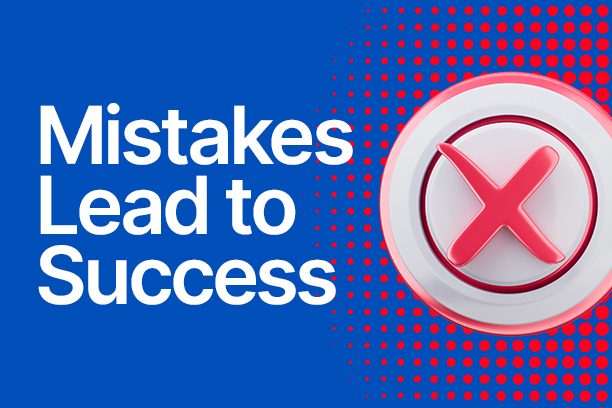Every entrepreneur fails, but only those who turn mistakes into lessons succeed. Kosuke, a 24-year-old angel investor, knows this firsthand. The difference between those who succeed and those who don’t isn’t whether they fail, it’s how they respond to failure. During his conversation on the CoinRock Show, 24-year-old angel investor and entrepreneur Kosuke shared his perspective on why learning fast and failing smart is critical in business.
“Mistakes are inevitable. What really matters is how quickly you understand them, adapt, and move forward.” – Kosuke
Kosuke’s entrepreneurial journey has been filled with ups and downs. From building and exiting a media company in Japan at just 20 years old to raising $1.3 million for his blockchain gaming startup before a devastating scam forced its closure, he has experienced both rapid success and painful failures. But instead of letting setbacks define him, he used them as stepping stones to his next ventures.
Failure is Not the End, It’s the Beginning of Growth
Many aspiring entrepreneurs fear failure so much that they never start. However, research from Harvard Business School found that second-time entrepreneurs have a 20% higher success rate than first-time founders. Why? Because experience, especially failure teaches what works and what doesn’t.
Kosuke’s first crypto project, Meta Strikers, was a blockchain-based football game that raised over $1 million and gained significant traction in Japan. Within three months, it generated over $3 million in sales. But then came a major setback, his team was deceived by a fake exchange listing manager, leading to the collapse of the project’s token and ultimately, the company. It was a brutal lesson in the realities of Web3 investing.
“We did our due diligence. We had meetings, and contracts, and everything looked legitimate. But in crypto, even one mistake can cost millions.” – Kosuke
Instead of dwelling on the loss, he took ownership of the mistake, ensured investors were compensated, and pivoted to new opportunities. His experience reinforced a crucial lesson: failure isn’t a sign to quit—it’s a moment to analyze, learn, and improve.
Learning From Setbacks Instead of Repeating Them
Failing smart means using mistakes as a roadmap for future success. Kosuke’s experience in blockchain gaming taught him how tokenomics works, the risks of centralized exchange listings, and the importance of thorough verification. These lessons became the foundation for his next venture—AI-driven social media solutions.
“The best way to avoid repeating mistakes is to move forward with the lessons you’ve learned. Every failure should make your next move stronger.” – Kosuke
Failing smart also means knowing when to pivot. After the collapse of Meta Strikers, instead of trying to force a comeback in blockchain gaming, he transitioned into AI technology. Recognizing the growing demand for automation, he built an AI-powered social media manager, which streamlines content creation, engagement, and marketing, an entirely different business model from his previous ventures but one that benefits from the insights he gained along the way.
The Fastest Learners Become the Most Successful
The ability to learn quickly is one of the most valuable business skills. According to Stanford research, top entrepreneurs analyze mistakes 30% faster, leading to stronger decision-making and business growth. The ability to rapidly analyze mistakes, adjust strategies, and execute improvements separates the best from the rest.
Kosuke embodies this mindset. He didn’t let early failures slow him down. Instead, he refined his approach, built stronger networks, and moved into high-growth industries. His AI company is now working on integrating blockchain payments for AI agents, merging his experience in crypto with cutting-edge automation.
Fail, Learn, Adapt, Repeat
Success isn’t about avoiding mistakes, it’s about learning fast and failing smart. Every great entrepreneur, from Elon Musk to Jeff Bezos, has made costly missteps. The key is to use each setback as fuel for the next breakthrough.
Kosuke’s journey proves that failure isn’t final. Whether it’s a business collapse, a bad investment, or a strategic mistake, In a fast-evolving world, those who learn the fastest, win. Every failure isn’t just a lesson, it’s a competitive edge.





